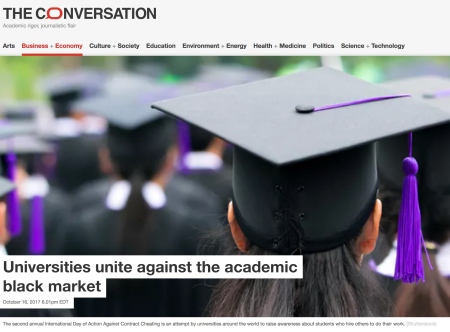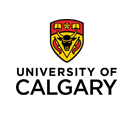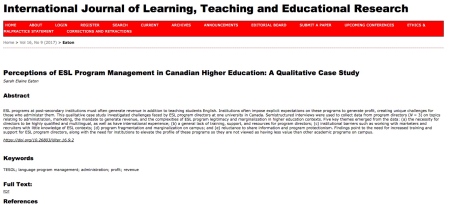 In my experience it is not uncommon for graduate students to struggle to figure out how to develop a conceptual or theoretical framework for their thesis or capstone project.
In my experience it is not uncommon for graduate students to struggle to figure out how to develop a conceptual or theoretical framework for their thesis or capstone project.
Here’s a list of resources that may help you do just that. I have developed this list with educational research in mind. Some of the resources are from other fields, but may have strong transferability to educational research contexts. Conversely, researchers from other fields may find the resources in this list helpful.
I have curated resources that are, in my opinion, high quality and relevant to those working in post-secondary research context. I have tried to include resources that are publicly accessible and available free of charge. I have excluded resources that seemed to be (again, in my opinion) overly brief or were being sold for profit.
Remember, if you are looking for sources to cite in your research paper or dissertation, scholarly journal articles and book chapters are often preferable to other kinds of resources because they are considered more credible. If you are just trying to wrap your head around the basics, any of these resources might help you.
Web-based resources
Clarke, R. (2011). Conceptual framework basics. Retrieved from https://youtu.be/vxA43z4B1ao
Kesterson, T. (2013). Developing Conceptual Framework: Part 1. Retrieved from https://youtu.be/HrbL508aG4k
Maxwell, J. A. (2005). Conceptual framework: What do you think is going on? Qualitative research design: An interactive approach (3rd. ed., pp. 39-72): Sage. Retrieved from: http://www.sagepub.com/sites/default/files/upm-binaries/48274_ch_3.pdf
Metha, R. S. (2013). Theoretical and Conceptual Framework as Blue Print of a House. Retrieved from https://www.slideshare.net/rsmehta/conceptual-and-theoretical-framework
Schneider, D. K. (2005). The research plan and conceptual frameworks. Retrieved from https://tecfa.unige.ch/guides/methodo/edu-tech/slides/res-design-intro.pdf
Sitko, N. J. (2013). Designing a qualitative research project: Conceptual framework and research questions. Retrieved from http://fsg.afre.msu.edu/zambia/Conceptual_Framework_and_Research_Questions.pdf
Thompson, C. J. (2017). How to use a theory to frame your research study. Retrieved from https://nursingeducationexpert.com/theory-frame-research/
Scholarly journal articles and book chapters
If you cannot find these articles easily, contact your local librarian. Often librarians can help you access legitimate copies of materials free of charge if you are having difficulty finding them.
Green, H. E. (2014). Use of theoretical and conceptual frameworks in qualitative research. Nurse Researcher, 21(6), 34-38. doi:10.7748/nr.21.6.34.e1252
Imenda, S. (2014). Is There a Conceptual Difference between Theoretical and Conceptual Frameworks? Sosyal Bilimler Dergisi/Journal of Social Sciences, 38(2), 185-195.
Jabareen, Y. (2009). Building a conceptual framework: Philosophy, definitions, and procedure International Journal of Qualitative Methods, 8(4), 49-62. Retrieved from https://journals.library.ualberta.ca/ijqm/index.php/IJQM/article/viewFile/6118/5892
Pearson Casanave, C., & Li, Y. (2013). Novices’ struggles with conceptual and theoretical framing in writing dissertations and papers for publication. Publications, 3(2), 104-119. Retrieved from https://doaj.org/article/227a9233d0d54cfeb08379902fbc0827 doi:10.3390/publications3020104
Saunders, M., N.K., Gray, D. E., Tosey, P., & Sadler-Smith, E. (2015). Concepts and theory building. In L. Anderson, J. Gold, J. Stewart, & R. Thorpe (Eds.), A Guide to Professional Doctorates in Business and Management (pp. 35-56). London: Sage.
Related posts:
How to narrow down your research topic http://wp.me/pNAh3-1Xf
Developing a Work Plan for Your Thesis https://wp.me/pNAh3-1X3
What if you’re wrong? A question for researchers http://wp.me/pNAh3-1Vq
______________________________________________________
Share or Tweet this: Conceptual and Theoretical Frameworks for Educational Research https://wp.me/pNAh3-1Za
Update – January, 2018 – This blog has had over 1.8 million views thanks to readers like you. If you enjoyed this post, please “like” it or share it on social media. Thanks!
Sarah Elaine Eaton is a faculty member in the Werklund School of Education, University of Calgary, Canada.



 Posted by Sarah Elaine Eaton, Ph.D.
Posted by Sarah Elaine Eaton, Ph.D.  On the
On the 
 In my role as Interim Associate Dean, Teaching and Learning at the Werklund School of Education, I have the chance to organize key events that bring people together over key issues related to teaching and learning in our school. When I heard about the
In my role as Interim Associate Dean, Teaching and Learning at the Werklund School of Education, I have the chance to organize key events that bring people together over key issues related to teaching and learning in our school. When I heard about the 



You must be logged in to post a comment.